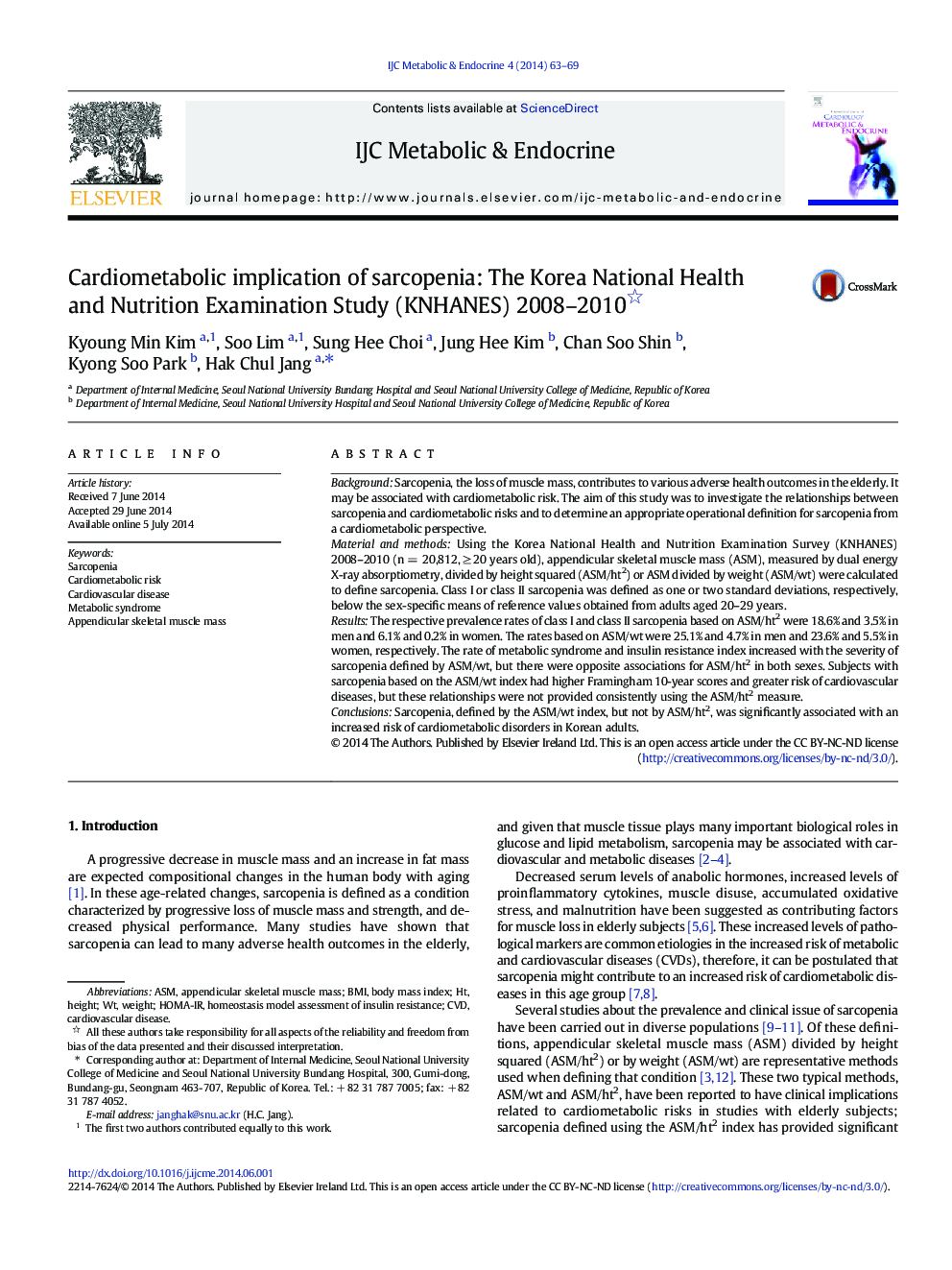| کد مقاله | کد نشریه | سال انتشار | مقاله انگلیسی | نسخه تمام متن |
|---|---|---|---|---|
| 2927285 | 1575833 | 2014 | 7 صفحه PDF | دانلود رایگان |

• Sarcopenia relates to the increased risks of cardiovascular disorders.
• Sarcopenia is significantly associated with metabolic impairment.
• ASM/wt index reflects cardiometabolic risks more accurately than those of ASM/ht2.
BackgroundSarcopenia, the loss of muscle mass, contributes to various adverse health outcomes in the elderly. It may be associated with cardiometabolic risk. The aim of this study was to investigate the relationships between sarcopenia and cardiometabolic risks and to determine an appropriate operational definition for sarcopenia from a cardiometabolic perspective.Material and methodsUsing the Korea National Health and Nutrition Examination Survey (KNHANES) 2008–2010 (n = 20,812, ≥ 20 years old), appendicular skeletal muscle mass (ASM), measured by dual energy X-ray absorptiometry, divided by height squared (ASM/ht2) or ASM divided by weight (ASM/wt) were calculated to define sarcopenia. Class I or class II sarcopenia was defined as one or two standard deviations, respectively, below the sex-specific means of reference values obtained from adults aged 20–29 years.ResultsThe respective prevalence rates of class I and class II sarcopenia based on ASM/ht2 were 18.6% and 3.5% in men and 6.1% and 0.2% in women. The rates based on ASM/wt were 25.1% and 4.7% in men and 23.6% and 5.5% in women, respectively. The rate of metabolic syndrome and insulin resistance index increased with the severity of sarcopenia defined by ASM/wt, but there were opposite associations for ASM/ht2 in both sexes. Subjects with sarcopenia based on the ASM/wt index had higher Framingham 10-year scores and greater risk of cardiovascular diseases, but these relationships were not provided consistently using the ASM/ht2 measure.ConclusionsSarcopenia, defined by the ASM/wt index, but not by ASM/ht2, was significantly associated with an increased risk of cardiometabolic disorders in Korean adults.
Journal: IJC Metabolic & Endocrine - Volume 4, September 2014, Pages 63–69